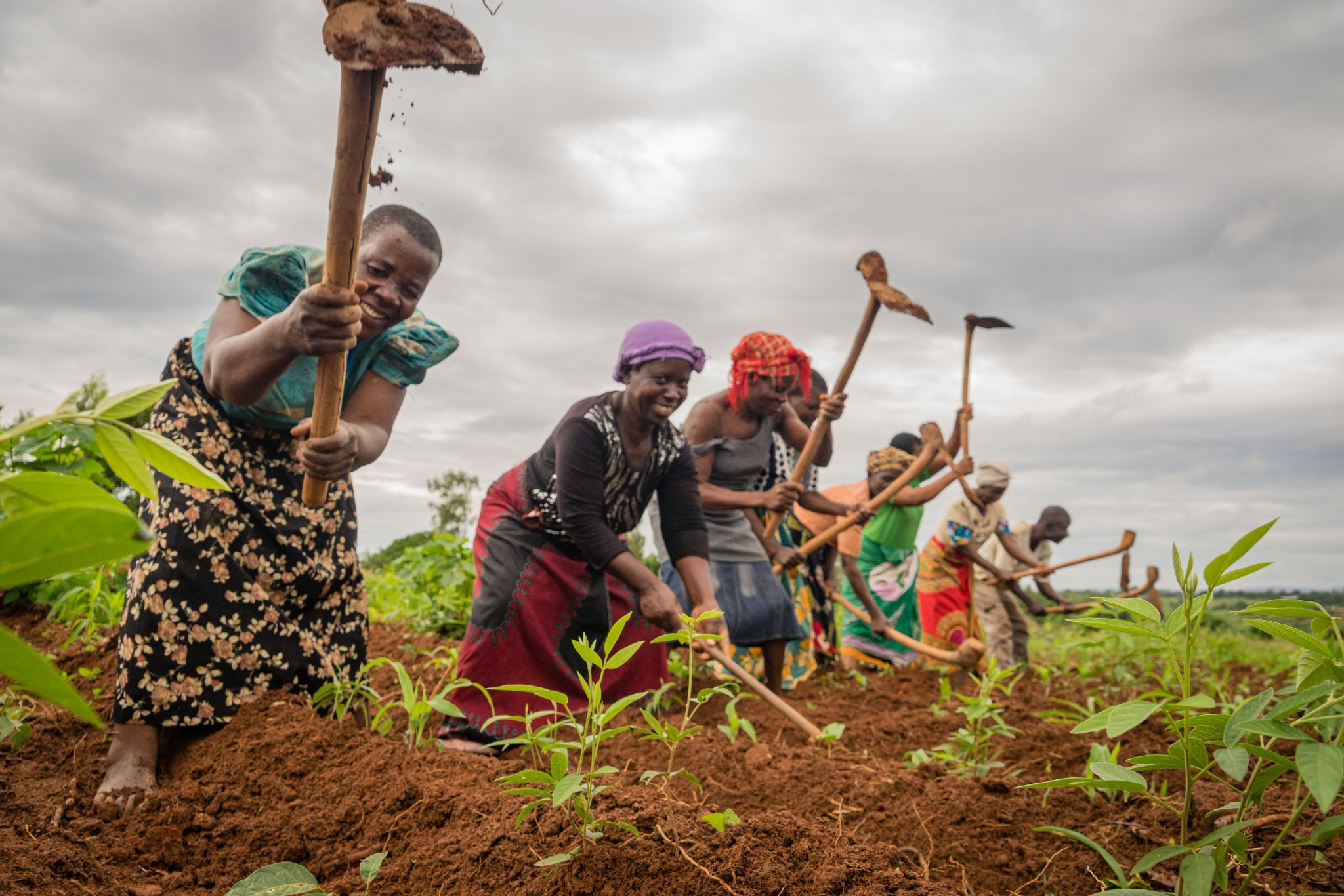African agriculture is a vital sector that supports the livelihoods of millions of people across the continent. However, despite their significant contributions to agricultural production, women entrepreneurs in Africa face numerous challenges that hinder their ability to succeed in the sector. This article explores the importance of promoting women’s entrepreneurship in African agriculture and provides insights into the challenges and opportunities that exist.
The Role of Women in African Agriculture
Women play a crucial role in African agriculture, accounting for approximately 70% of the continent’s agricultural workforce. They are involved in all aspects of agricultural production, from planting and harvesting to processing and marketing. Despite their significant contributions, women’s participation in African agriculture is often limited to subsistence farming, with limited access to markets, credit, and other resources.
Challenges Faced by Women Entrepreneurs in African Agriculture
Women entrepreneurs in African agriculture face numerous challenges that hinder their ability to succeed in the sector. Some of the key challenges include:
- Limited access to credit and financial services: Women entrepreneurs in African agriculture often lack access to credit and financial services, making it difficult for them to invest in their businesses and expand their operations.
- Limited access to markets: Women entrepreneurs in African agriculture often face significant barriers when trying to access markets, including lack of market information, high transportation costs, and limited access to storage facilities.
- Limited access to technology and training: Women entrepreneurs in African agriculture often lack access to technology and training, making it difficult for them to improve their productivity and competitiveness.
- Cultural and social barriers: Women entrepreneurs in African agriculture often face cultural and social barriers that limit their ability to participate in economic activities and make decisions about their businesses.
Opportunities for Promoting Women’s Entrepreneurship in African Agriculture
Despite the challenges faced by women entrepreneurs in African agriculture, there are numerous opportunities for promoting their participation and success in the sector. Some of the key opportunities include:
- Increasing access to credit and financial services: Governments and financial institutions can increase access to credit and financial services for women entrepreneurs in African agriculture, enabling them to invest in their businesses and expand their operations.
- Improving access to markets: Governments and private sector companies can improve access to markets for women entrepreneurs in African agriculture, providing them with market information, transportation services, and storage facilities.
- Providing training and technology: Governments and private sector companies can provide training and technology to women entrepreneurs in African agriculture, enabling them to improve their productivity and competitiveness.
- Addressing cultural and social barriers: Governments and civil society organizations can address cultural and social barriers that limit the participation of women entrepreneurs in African agriculture, promoting their empowerment and equality.
Strategies for Promoting Women’s Entrepreneurship in African Agriculture
To promote women’s entrepreneurship in African agriculture, governments, private sector companies, and civil society organizations can implement a range of strategies, including:
- Developing and implementing policies and programs that support women’s entrepreneurship: Governments can develop and implement policies and programs that support women’s entrepreneurship in African agriculture, providing them with access to credit, markets, technology, and training.
- Providing training and capacity-building programs: Governments and private sector companies can provide training and capacity-building programs for women entrepreneurs in African agriculture, enabling them to improve their productivity and competitiveness.
- Establishing women’s entrepreneurship networks and associations: Governments and civil society organizations can establish women’s entrepreneurship networks and associations, providing women entrepreneurs in African agriculture with opportunities for networking, mentorship, and support.
- Promoting women’s entrepreneurship through media and advocacy: Governments and civil society organizations can promote women’s entrepreneurship in African agriculture through media and advocacy, raising awareness about the importance of women’s entrepreneurship and the challenges faced by women entrepreneurs.
Conclusion
Promoting women’s entrepreneurship in African agriculture is critical for improving the productivity and competitiveness of the sector, as well as for promoting economic growth and development. By addressing the challenges faced by women entrepreneurs in African agriculture and providing them with access to credit, markets, technology, and training, governments, private sector companies, and civil society organizations can promote women’s entrepreneurship and empowerment, contributing to a more equitable and prosperous future for all.
Recommendations
To promote women’s entrepreneurship in African agriculture, we recommend the following:
- Governments should develop and implement policies and programs that support women’s entrepreneurship in African agriculture.
- Private sector companies should provide training and capacity-building programs for women entrepreneurs in African agriculture.
- Civil society organizations should establish women’s entrepreneurship networks and associations, providing women entrepreneurs in African agriculture with opportunities for networking, mentorship, and support.
- Governments and civil society organizations should promote women’s entrepreneurship in African agriculture through media and advocacy, raising awareness about the importance of women’s entrepreneurship and the challenges faced by women entrepreneurs.

